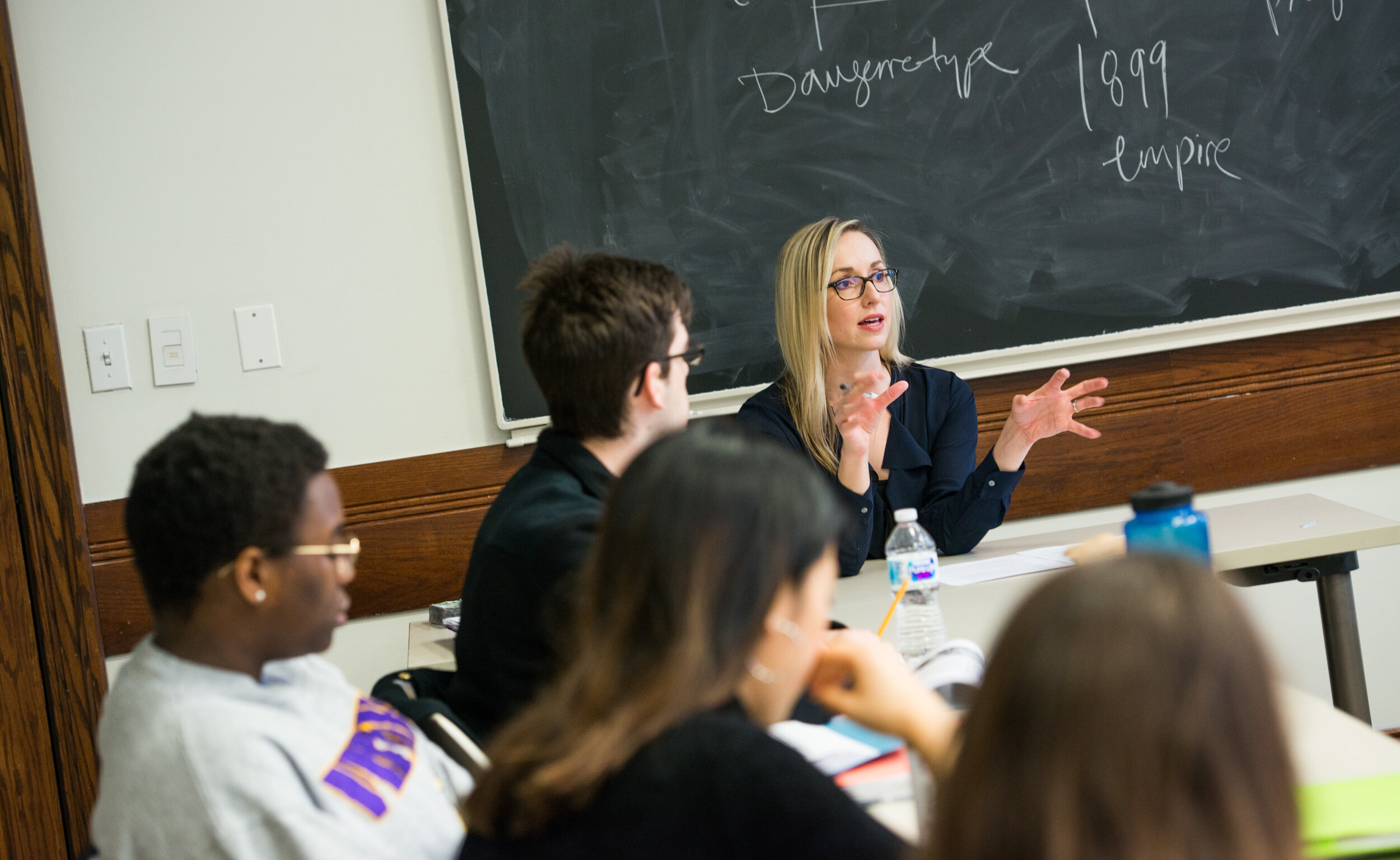
In her teaching, Dr. Belew explores the history of the present.
Her courses, ranging from undergraduate lectures to doctoral seminars, focus on the recent history of the United States. Recent listings include a third-year seminar on 9/11, a doctoral seminar for historians, and courses in cultural history and the history of American conservatism.
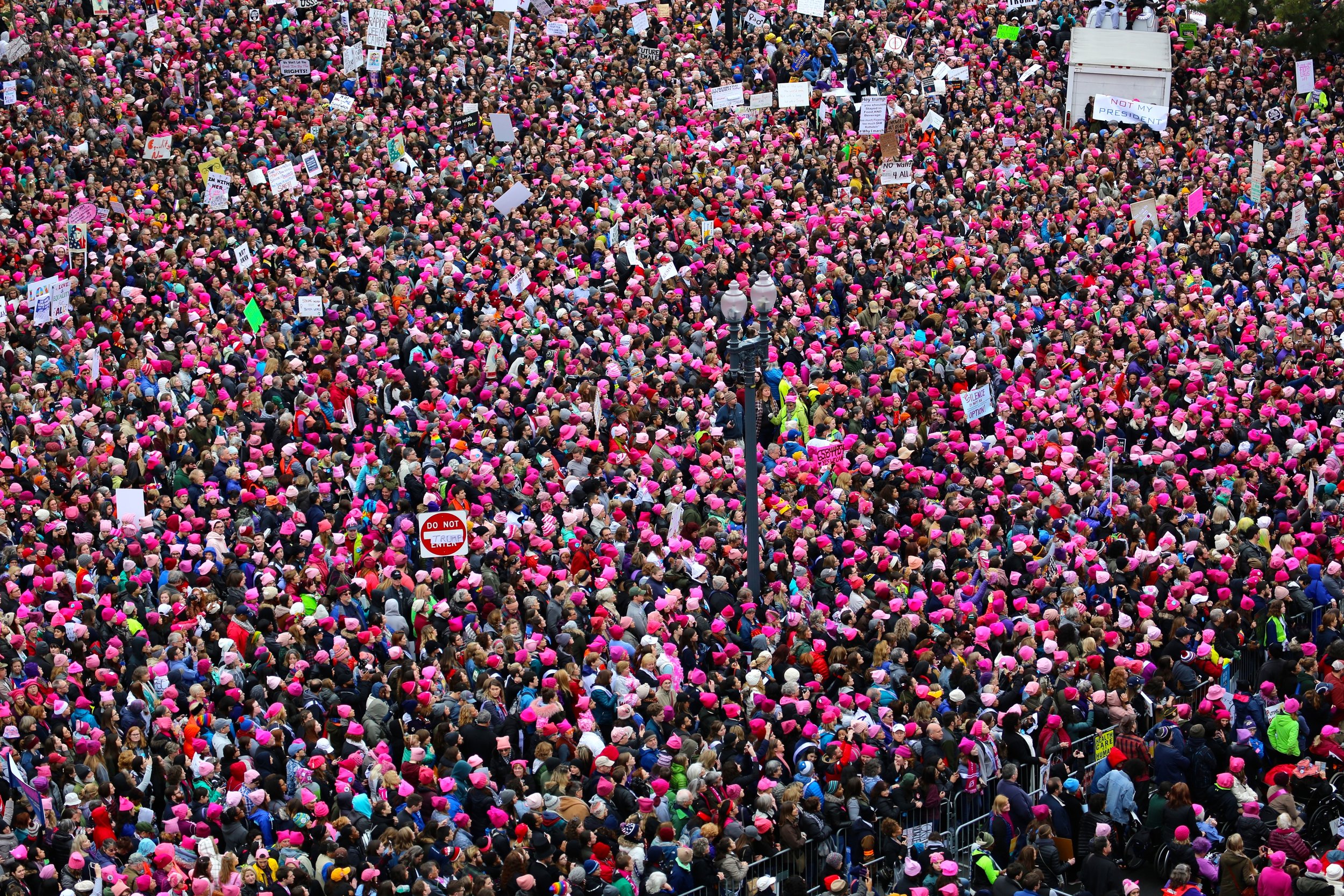
Undergraduate lecture, University of Chicago Signature Course
This course takes a reverse approach to the study of history, defining issues relevant to the current moment—some determined by the students—and exploring the long stories required to understand the present. We might examine the election of 2016, social movements, climate change, debt, gun ownership, statelessness, and other issues. Each topic will occupy one week of the class. Students will learn historical thinking skills, critical reading, and argumentation, and will complete a final assignment geared towards providing historical context for an ongoing debate in the public sphere. This lecture course is an elective open to non-majors and to first- and second-year students, although upper-year students and History majors and minors are welcome. No previous History coursework is required.
Image: Women's March on Washington, 2017 (Wikicommons)
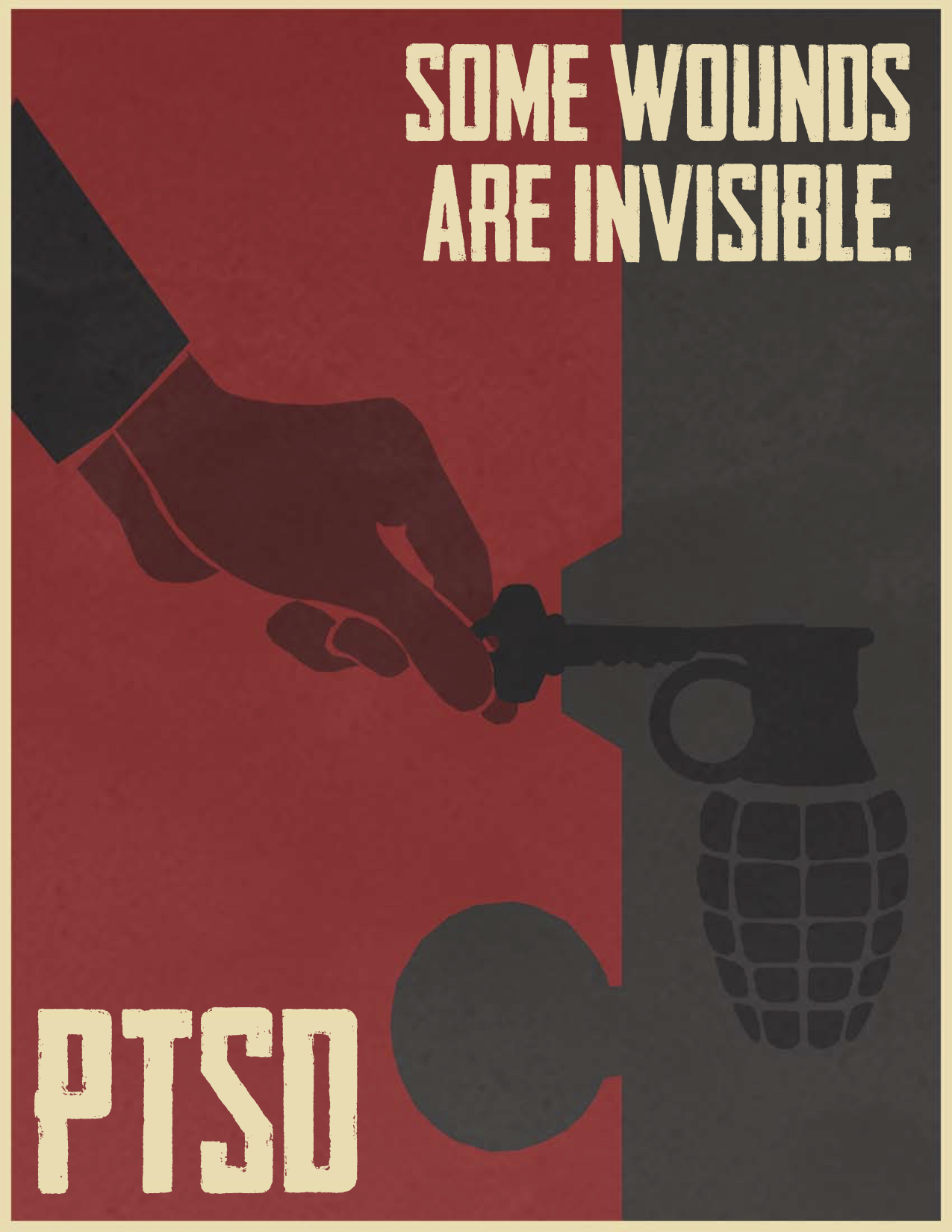
Advanced undergraduate lecture
How does violence change life stories and national narratives? How can a nation remember and retell obscured histories of violence, reconcile past violence, and resist future violence? What does it mean that lynching emerged in the same historical moment as the Bill of Rights, and that certain kinds of violence have been central to American identity?
The story of the United States is built on the inclusion or omission of violence: from the genocide of Native Americans to slavery to imperial conquest, from “private” pain of women to the nationalized pain of soldiers. This course brings violence to the center of U.S. history. Moving from Early America to the present, we will discuss these overlapping stories in terms of their visibility and invisibility, addressing questions of representation and the haunting function of traumatic experience. Following an emerging subfield of scholarship in Histories of Violence, this course examines narrative, archival, and political issues around studying, teaching, and writing such stories.
Image: Julia Watson, final project for Histories of Violence in the United States (2013, Northwestern University)
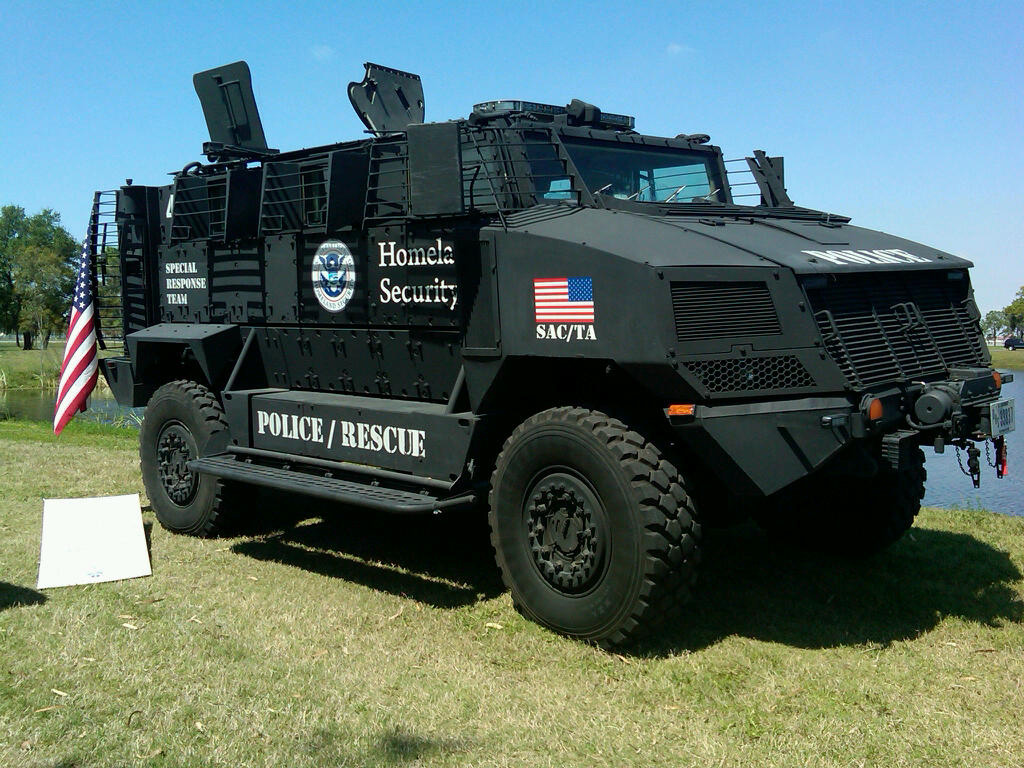
Graduate Colloquium
This course explores the historical roots and late-twentieth century rise of mass incarceration in the United States. We will focus on three major themes: the emergence of the prison-industrial complex, histories of racialized prison labor, and local economies around prisons; racialized and militarized policing, mandatory mimums, and the War on Drugs; and militarism more broadly in American life and culture. Within these historical trajectories, we will focus on mass incarceration as continuity and change with earlier moments; race and gender as rendered through the carceral state; and how the state itself has shifted to promote and accommodate militarized policing and large numbers of incarcerated people.
Image: Paramilitary police unit (Wikicommons)
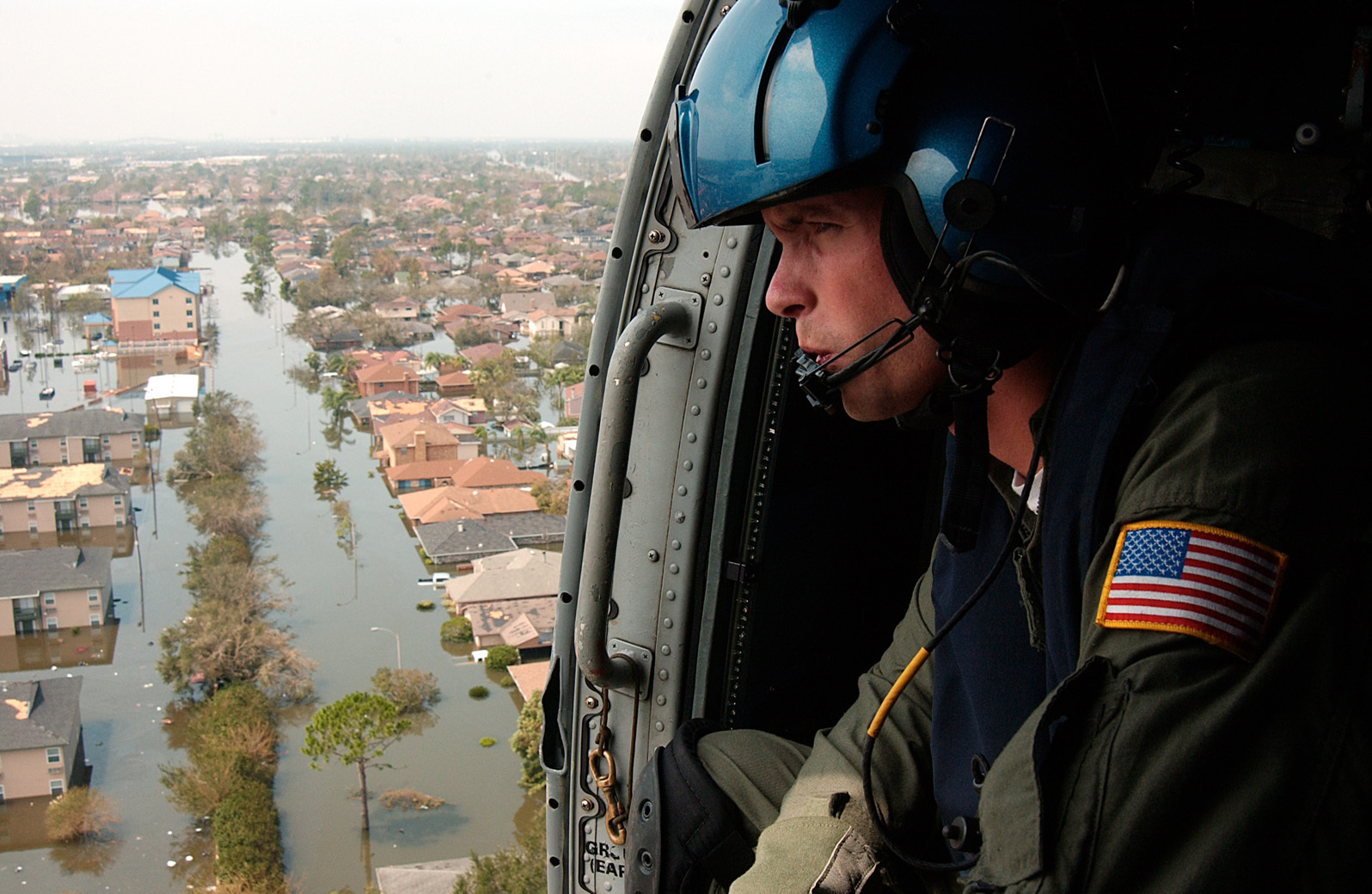
Civilization Core
What were the boundaries, limits, and possibilities of America as a cultural community in the twentieth century? What conditions have shaped inclusion and exclusion from the category “American”? Who has claimed rights, citizenship, and protection, and under what conditions? What core questions have constituted America and its denizens?
This quarter focuses on multiple definitions of Americanism and social order in a multicultural society; Taylorism and social engineering; culture in the shadow of war; the politics of race, ethnicity, and gender; the rise of new social movements; the emergence of the carceral state and militarization of civil space; and the role of climate change and the apocalyptic in shaping imagined futures.
Image: U.S. Coast Guard surveys damage after Hurricane Katrina, 2005, Wikicommons.
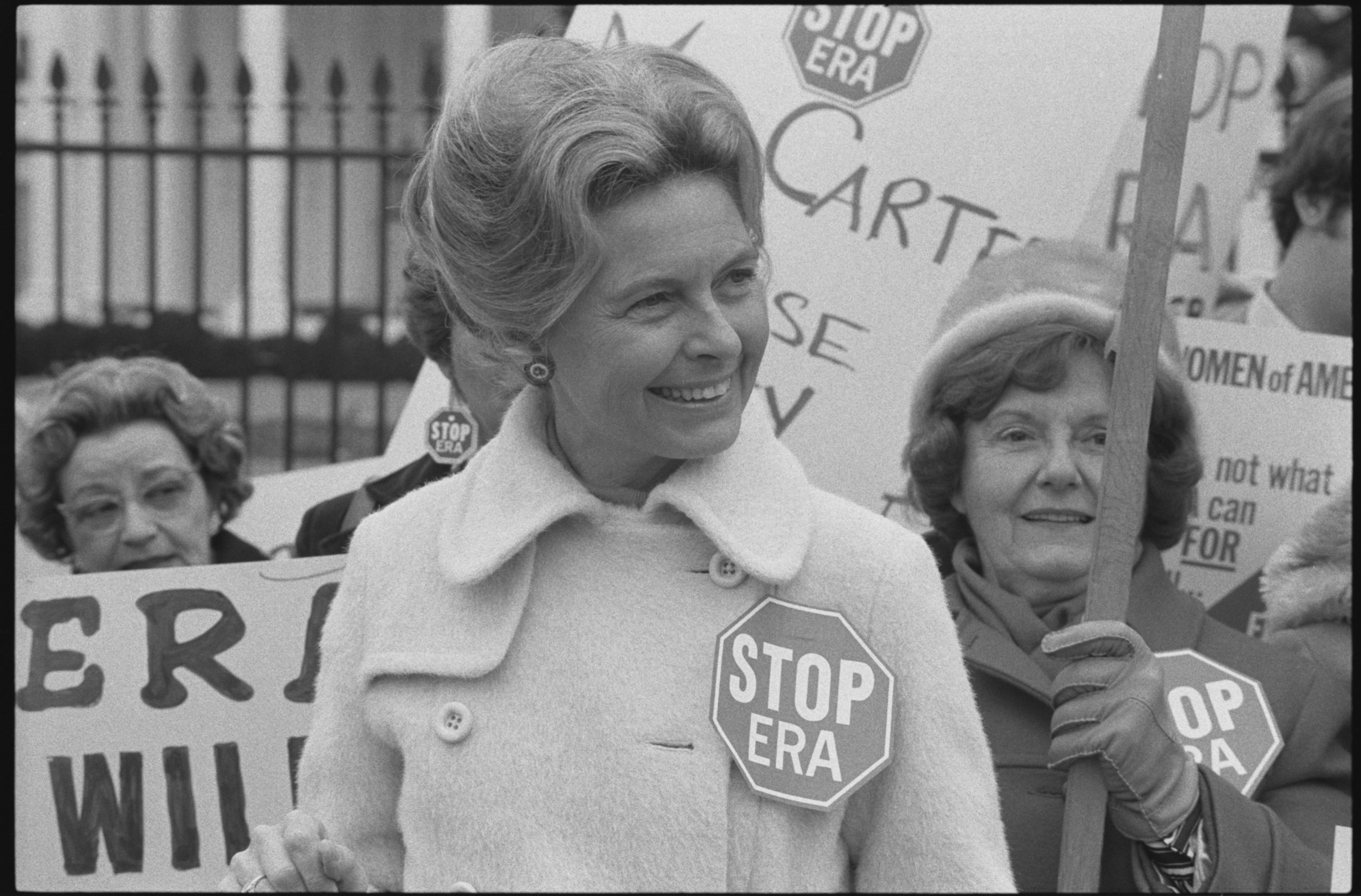
Graduate Colloquium
This course explores the burgeoning historiography of American conservatism, tracing the movement from its grassroots origins after World War II to its institutionalization and militarization in the Reagan era to the rise of evangelical Christianity and Tea Party politics. We will focus on the role of women in the movement, the ideological alliances in its founding, and the roles of particular conservative groups in the movement's history. This course will move both chronologically and thematically to explore fundamental questions about activism and radicalization, grassroots and top-down ideologies, and the impact of conservative thought and institutions upon American society and state in the late twentieth century.
Image: Phyllis Schlafly, 1977 (Library of Congress, ds 00757 //hdl.loc.gov/loc.pnp/ds.00757)
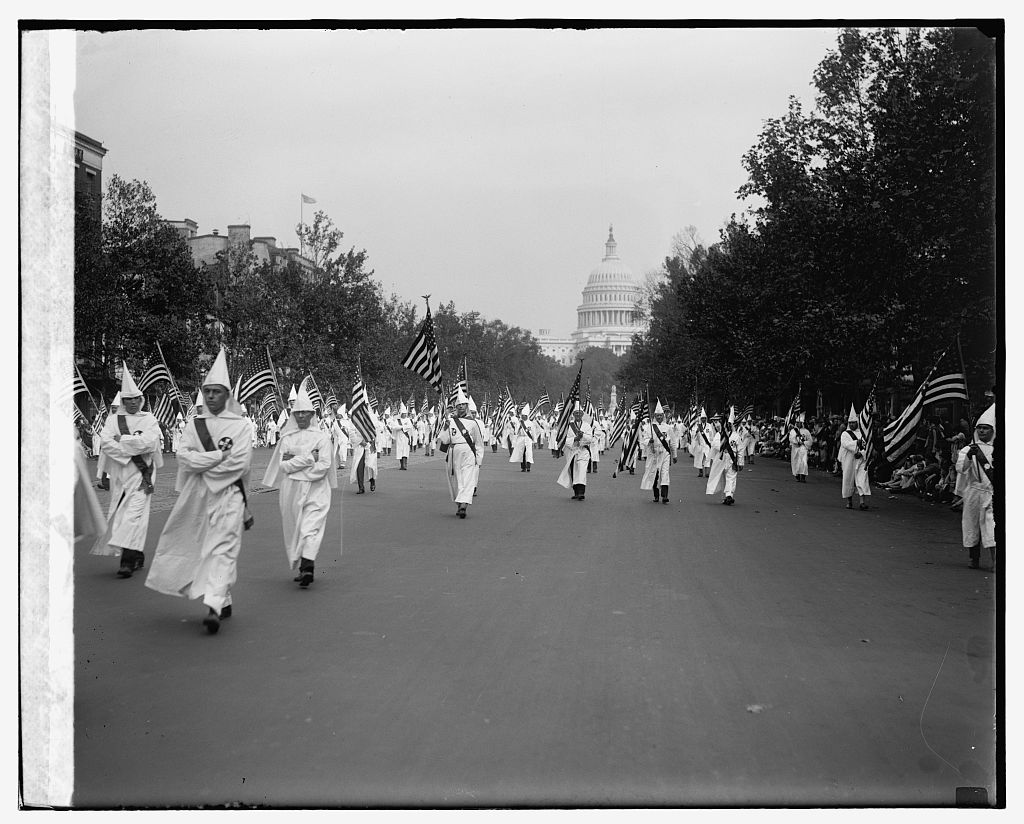
Third-Year Colloquium for History Majors
From the Regulators to Rambo, the vigilante has played a leading role in the history and culture of the United States. This course traces a long history of the American Vigilante and episodes of vigilante violence, from early America to the present. We will focus on the questions central to this history: what is the difference between violence to enslave and violence to set free? What is the relationship between the vigilante and the state, and in what ways has the state benefitted from vigilantism? Where can we draw distinctions between vigilantism, terrorism, and rebellion? How has the vigilante contributed to nation-building? This class examines a wide variety of vigilante violence, including settler violence against Native Americans, the lynching of people of color, urban mob violence, and paramilitarism.
Image: Ku Klux Klan parade in Washington, D.C. (Photograph, 1926)--Library of Congress, LC-DIG-npcc-16225

Survey
This course presents an overview of U.S. history from Reconstruction to the present, focusing on two ideas of the nation: one America that aspired to fulfill the grand promise of democracy, sovereignty, and freedom, and one America defined by racial, gender, class, and sexual inequality, as well as the construction of empire through interventions around the world. We will structure our discussion around the interplay between these two ideas.
Focusing on major historical developments, we will examine the lived experiences of many different kinds of people over the course of the twentieth century. This course will cover Reconstruction and lynching, the expansion of U.S.-held territories, the construction and policing of the U.S.-Mexico border, five American wars, a host of social movements, and many other historical antecedents to current-day political debates. We will contrast histories of nation-building with revolutionary opposition; capitalism with socialist protest; immigration with vigilantism; and leftist social movements with the ascendance of conservatism. As we explore American history, students will learn and hone historical thinking skills that will benefit them in any later pursuit, including facility with historical narrative, formal writing and argumentation, and the ability to critically engage primary sources.
Image: John Gast, American Progress (Chromolithograph, 1873)--Library of Congress, LC-USZC4-668






